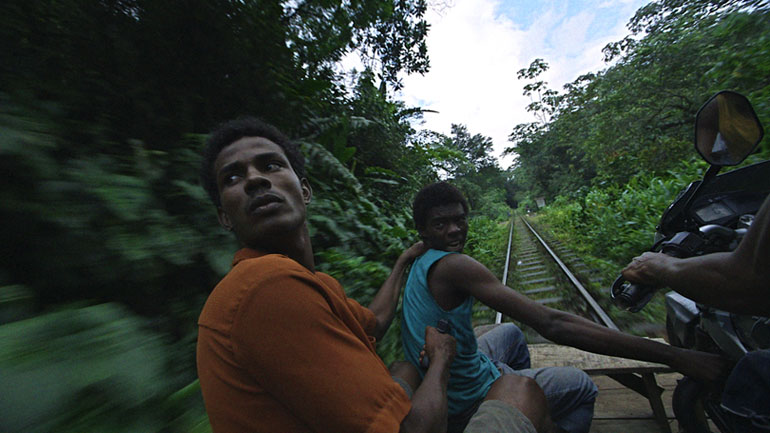Sound of Torture is a harrowing tale of abuse, rape, burnings, beatings psychological and emotion torture placed on a people who are attempting to escape from a brutal military regime in their home land. The Eritreans that managed to escape in prior years could go to Europe to seek refuge. But the European nations closed their borders leaving a trek across the Sinai Desert to Israel as the only way out. During the journey Eritrean men, women and children are hunted by the Bedouins captured then taken to torture houses where the atrocities are inflicted.
Director Keren Shayo trains her lens on several different Eritrean nationals but the story mainly focuses on two women. Hiryti who was just about to give birth when captured and the desperate voice on the other end of Meron's phone at the films opening and Timnit just out of her teens who disappeared 18th month prior somewhere near the Egypt Israeli border. The central figure in the story is the afore mentioned Estefanos who wandered into the desperate plight of these people almost by accident. She had a caller on her show who was talking about the situation in the terror camps. Meron questioned the validity of the callers comments. The caller gave her a legitimate number to call that put a camp prisoner on the other end of the phone.
The narrative sharpens when Meron decides that she has to see events unfold in Tel Aviv. Once on the ground she meets members of the Eritrean community including several people that she regularly talked to on the phone or over the air. Now in the area Estefanos turns to one of her main goals to venture out to the area of the torture camp disguised in traditional Muslim attire. In the area she finds discarded clothing of men, women and especially children along with torn garments stuck in the fencing separating Egypt and Israel. She is also determined to track down the missing pieces to Hiryti and Timnit's stories.
The members of the Eritrean community are happy to be in Israel. They are no longer being tortured but their fates are not settled. Meron meets several community members that show her the permanent torture scars. Even the psychological scares are evident in body language and physical reactions. They have no status in Israeli, no work permits are known as infiltrators and are subject to deportation back to Eritrea if they come into conflict with the law.
Sound of Torture is a detailed looks into a little publicized story. The documentary features real conversations and interviews with Eritrean ex-pats and recordings of conversation with victims as they are in prison. It also highlights the different fates of Eritrean's like Meron who was able to get out and go to Sweden vs those who left after Europe shut their borders and their options are persecution at home, potential kidnapping on the trip across the Sinai or at best living undocumented in Israel with the threat of deportation constantly over your head. The film is a powerful account of the fate of a people and one that I can highly recommend.
*** 1/2 Out of 4.
Sound of Torture | Keren Shayo | Israel / Egypt / Sweden | 2013 | 58 Minutes.
Tags; War, Kidnapping, Eritrea, Sinai Dessert, Tel Aviv, Ransom, Torture, Disappeared, Undocumented, infiltrators.

